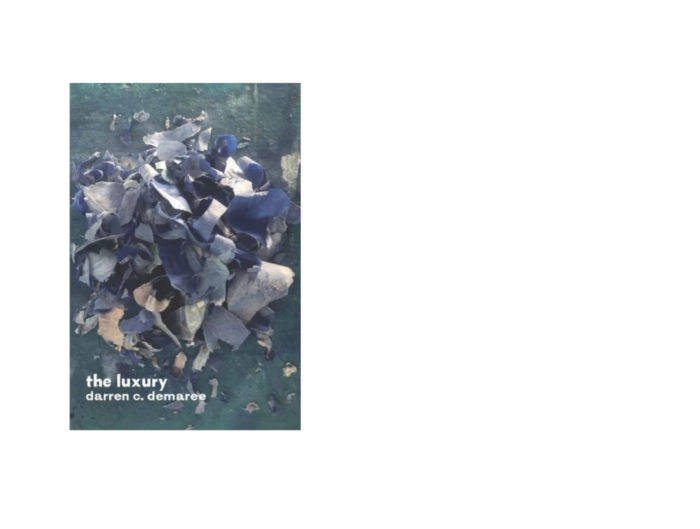Tommy Dean is the author of two flash fiction chapbooks, Special Like the People on TV (Red Bird Chapbooks, 2014) and Covenants (ELJ Editions, 2021), and a full flash collection, Hollows (Alternating Current Press, 2022). He lives in Indiana, where he currently is the editor at Fractured Lit and Uncharted Magazine. A recipient of the 2019 Lascaux Prize in Short Fiction, his writing can be found in Best Microfiction 2019, 2020, 2023, Best Small Fiction 2019 and 2022, Monkeybicycle, Moon City Press, and numerous other literary magazines.
He has taught writing workshops for the Gotham Writers Workshop, the Barrelhouse Conversations and Connections conference, and the Writers Workshop.
I had the pleasure of taking a one-on-one workshop with Tommy last year, where he read a portfolio of my stories and provided insightful and thorough feedback. The feedback taught me a lot about flash story construction and gave me some useful insights about my own tendencies. The experience helped me improve as a writer, reader, and editor.
INTERVIEWER
What drew you to flash fiction, and what do you enjoy most about writing it? What are you working on next?
DEAN
The challenge to fill up a story space with a limited number of words! I found that I tend to think about characters and their story in “hot spots,” one moment in their lives that reveals everything about them. I love the challenge of cutting out parts of the typical narrative arc, to reveal characters by way of the smallest brushstrokes, to make a reader feel something new and/or different by using brevity and heightened language. I love that you can convey a moving story with a three-dimensional character in fewer than 1,000 words, that you don’t need to dwell in interior thought, exposition, and backstory. And that these elements if used at all can be condensed to only the necessary number of words or space in a story. I’m putting the finishing touches on a new flash fiction collection that I hope to find a home for in the next couple of years.
INTERVIEWER
I encounter a lot of readers who are unfamiliar with flash. Why should someone who loves to read and read fiction, but is unfamiliar with flash, read flash?
DEAN
Great flash provides the reader with a burst of narrative, an opportunity to have the feelings of a full story or novel in less than five minutes. Flash asks and inspires the reader to think about the characters and the story long after reading the last word. Flash lingers; it invites and marvels, it challenges, and it demands notice and attention. Readers can get a large amount of reading satisfaction in little reading time. But the depth of these stories will sneak up on these new readers, and it can be addictive, as well as entertaining and edifying.
INTERVIEWER
How do you typically approach a new piece of flash? Where do your ideas come from? Once you have an idea, what happens next?
DEAN
I usually start my stories with the first line; this rarely changes once I write it. It usually comes from a character talking in my head, or an image that comes to my mind. I then usually think about ways to get into the first line some information about the character, point of view, setting, and initial conflict. This is what drives me to write the rest of the story. It gives me an idea of the pressures I can put on the main character to make them act! Once they’re acting on the stage of the story, I follow their actions and reactions until I find the change/shift/reckoning created by the conflict or pressure put on this main character.
INTERVIEWER
In addition to being an award-winning and anthologized flash writer, you are also an editor of two literary magazines and you teach and coach emerging writers. How do these other roles inform your own writing, and vice versa?
DEAN
Editing and teaching reinforce and make me think differently about my understanding of the elements of the flash fiction form. The desire and the need to put into words how writers can use craft elements reinforces things I’ve done or want to try in my own writing. After I’ve tried these moves in my own writing, I have a better chance of articulating how others can use them to write their own flash fiction. I also love the community aspect of being an editor, teacher, and mentor. I try to provide the support that I myself wanted and received when I first started writing. I’m happy to help writers on their own writing journeys, and this often inspires my own writing.
INTERVIEWER
You seem to have built a strong writing community online and off. What’s been your approach to building community? Why is it important to you? And what advice do you have for emerging writers who want to build their own writing community?
DEAN
When I first started writing there wasn’t much in the way of building a writing community through social media. I started by reading writer interviews, hoping to see how they felt about creating their art. But I wanted to do more than read about craft; I wanted fellowship and to be able to commiserate with fellow writers. I wanted to talk about writing, and I eventually found a place to do that on Twitter (before it started dying). My first love is reading, so I’m excited to read and share other writers’ stories, to talk to them about their art and their experiences with publishers, their experiences reading writers’ work they love, and just being a part of a supportive community, who want something that goes beyond workshops and classes, that borders on direct friendship and respect. Anyone can join this community by starting to share writing/art they love with others, by supporting writers and publishers and litmags, by spreading the joy of fantastic writing. This is an easy way to find like-minded writers, who will want to share your work as well. Mutual respect and support equal a thriving community.
INTERVIEWER
What are three books you recommend others read, and why? Flash or otherwise.
DEAN
The Art of Brevity, by Grant Faulkner, is a great primer and philosophical look at the craft of writing flash fiction/nonfiction or anything with a small word count.
The Disappeared, by Andrew Porter, is a fantastic short story collection. Andrew ranks as one of my favorite writers, and this collection takes that to an even higher level.
Best Microfiction 2019–2023; every year a separate anthology of amazing stories 400 words or fewer. A rich diversity of writers and microfiction narratives. ◆


